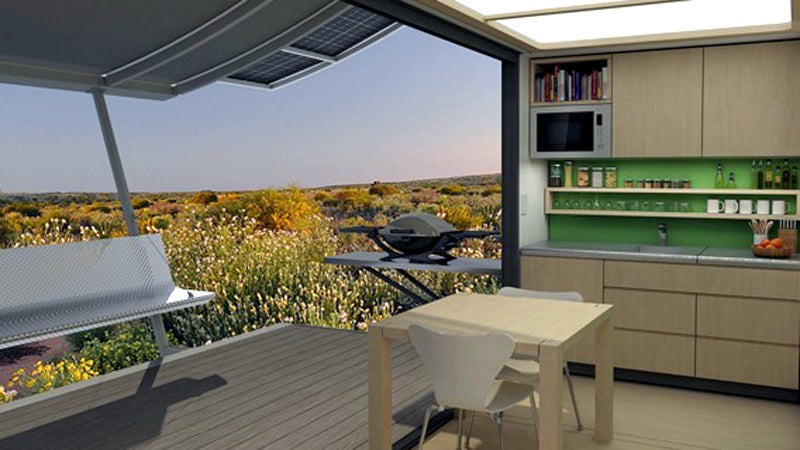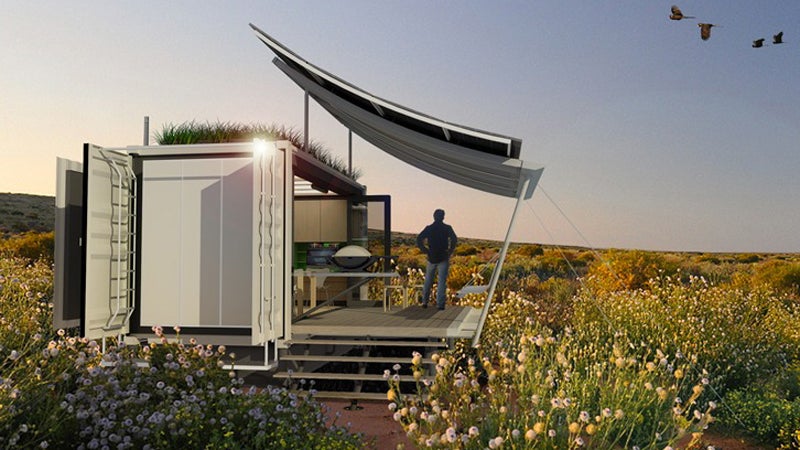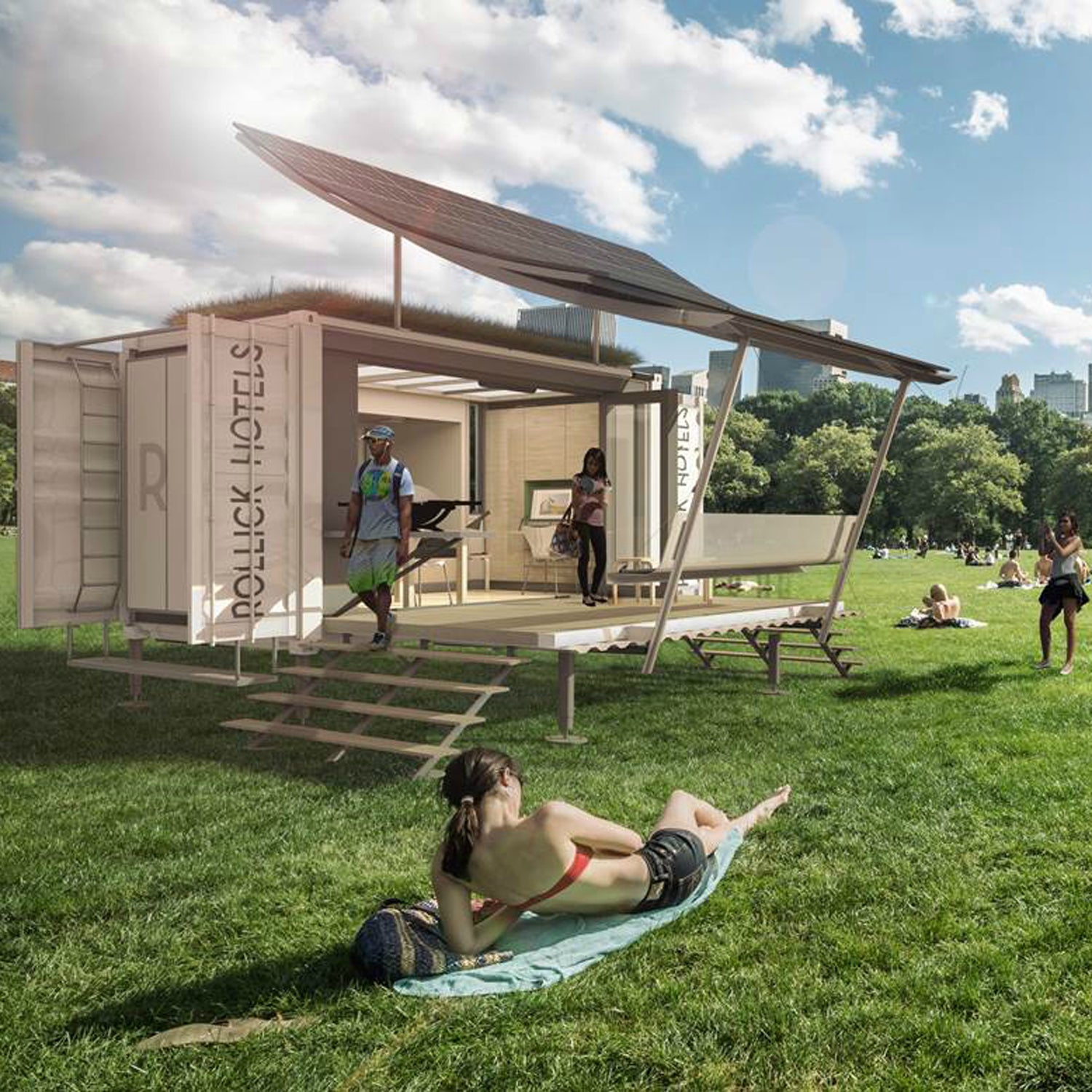A city’s capacity to host a massive event (think the Olympics or World Cup) is only as large as its number of hotel rooms. Once those brick-and-mortar accommodations fill up, guests are turned away. But one Houston-based startup aims to change that.
plans to build mobile hotel rooms in shipping containers. The units can be set up at major sporting events or music festivals to boost lodging options. When the crowds leave, the rooms can be packed up and shipped to another locale.
“From our perspective it’s purely a supply-and-demand issue. Our idea is just to add additional inventory,” says Rollick Hotels Founder Shawn Bouley. “The nature of these units is they can be put up in a parking lot, in a field, on a beach, virtually anywhere on any surface.”

While Bouley emphasizes the packable rooms’ practical applications, we’re most intrigued by what’s inside. The units, manufactured in China, will have all the amenities of a nice hotel room: bathroom with plumbing, hot shower, king-size bed, television, and mini-kitchen. And they’ll be built primarily from recycled and sustainable materials, such as bamboo. “The sliding windows open. You can walk out on the deck,” Bouley says. “For us, it’s more like a condo than a hotel room in a shipping container.” They also go up—and down—fast: crews can put together each 400-square-foot room in about two hours.
Bouley envisions three principal uses for the pods: lodging for festival and event attendees, housing for event workers and branded corporate villages. Between major events, Bouley hopes to set up temporary boutique hotels in remote locations far from any other lodging. “We could set up in areas where you couldn’t have a traditional hotel or where it doesn’t make economic sense to have a traditional hotel,” Bouley says, listing places like Moab, the Grand Canyon, and New England deciduous��forests in the fall.

Rollick isn’t the first to launch a business around portable lodging. The idea first blossomed in Europe when a London company called engineered a series of hotel rooms to fit on the back of a semi-truck. Events like the Ryder Cup . Then other ideas for alternative lodging began to surface. started carting and setting up luxury tents at some of Europe’s major festivals in 2012. Pink Cloud, a Denmark firm, developed a . When boxed, its concept fit on a long-bed trailer.��
“Office vacancies are found in every big city around the world,” says Pink Cloud partner Eric Tan. “The popup hotel idea was based around the premise of, ‘Why let that space sit empty?'”
Are popups and portable hotels set to revolutionize the hospitality industry? Probably not. Unlike Airbnb, they’re not a direct competitor to major chains and when you look at the numbers, mobile hotel rooms are hardly a blip in the business. “There are about 53,000 hotels in the U.S.,” says Paul Breslin, a lodging industry consultant with . “Popups represent less than 1 percent of those.”
In other words, there’s room to grow. Rollick plans to start with 100 rooms in early 2016. Bouley��hopes to expand to 250 rooms by 2017. “This really works on scale,” Bouley says. “Having five or 10 doesn’t really do it for us, because the economics don’t work.”��
$TBD per night,


